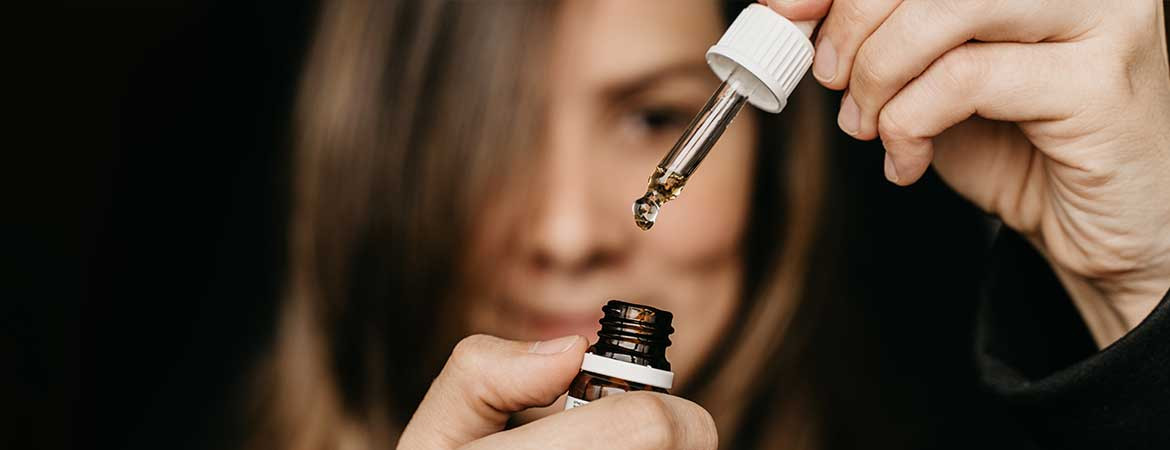- Free Shipping Over $75
- 60-Day Money-Back Guarantee
Shop Popular Products
Made from US-Grown Industrial Hemp
100% Clean Ingredients
Rigorously Tested, Quality Assured

We recently conducted a survey where we asked CBDistillery™ customers, “what is the primary benefit you received from CBDistillery™ products?” Not to our surprise, we received a variety of answers, no two entirely alike. What immediately sparked my attention, were the comments from customers stating something similar to, “I didn’t get any relief” and “it helped a little but not as much as I’d hoped.” The majority of the feedback we receive from CBDistillery™ customers on a day-to-day basis is how CBD has changed their lives for the better. So why does CBD impact some and not others? Why does cannabis affect people differently?
To get some answers, I took to the Internet and found several studies about why cannabis products affect users differently. Apparently, I am not the first person to ask this question. Even the ‘father of THC,’ Rafael Mechoulam was curious about how this newly discovered molecule would affect different people. Thus, one evening he invited over a few of his friends for some cake, which little did they know, was laced with 10mg of pure THC. A few of his friends felt ‘strange, in a different world,’ while some couldn’t stop talking or giggling. While the scientist now understood the cannabis compound, THC does, in fact, cause different reactions, it wasn’t until years later that we would figure out why. Here is a look as to why all cannabis (marijuana or hemp derived) products affect people differently.
About 20% of the population has good endocannabinoid genetics. These people were born with a genetic mutation that increases the level of endocannabinoids and levels of anandamide (the so-called bliss molecule) naturally occurring in their system. As a whole, the endocannabinoid system is partially responsible for regulating sleep, appetite, mood, motor control, immune function, pleasure, pain, reproduction and fertility, memory and temperature regulation. When someone consumes cannabis, the cannabinoids, like THC and CBD, replace the naturally occurring endocannabinoids in your body. Thus, if you are among the lucky few that have this genetic mutation, you are most likely less inclined to feel the effects of CBD because your body already naturally produces a similar result.
As a whole, the endocannabinoid system is partially responsible for regulating sleep, appetite, mood, motor control, immune function, pleasure, pain, reproduction and fertility, memory and temperature regulation. When someone consumes cannabis, the cannabinoids, like THC and CBD, replace the naturally occurring endocannabinoids in your body. Thus, if you are among the lucky few that have this genetic mutation, you are most likely less inclined to feel the effects of CBD because your body already naturally produces a similar result.
Cannabidiol products affect men and women differently. Research shows that estrogen makes females more sensitive to cannabis. That time of the month? Washington State University found that women are impacted more by THC a day or two before ovulation, because of the peak in estrogen levels.1

Biochemistry, the study of chemical substances and vital processes occurring in living organisms is yet another explanation as to why people react differently to CBD products. No two individuals have the exact biochemistry make up, which affects the way substances metabolize throughout our system. The health of one’s endocannabinoid system plays a significant role in this. As previously mentioned, the human body naturally produces endocannabinoids. Things like diet, stress, and overall lifestyle influences endocannabinoid levels. When consuming cannabis products, you are increasing endocannabinoid levels. For individuals who have deprived levels, cannabis consumption will most likely produce a favorable experience, whereas someone with healthy endocannabinoid levels might not “feel” the effects of CBD or other marijuana products.

Someone who is using cannabis products to treat symptoms for a disease or disorder is going to have a very different experience than someone using cannabis recreationally. When someone is fighting off an ailment or illness, that individual’s biochemistry and endocannabinoid levels are  altered, thus, potentially producing a different effect than if that person’s endocannabinoid levels were replenished.
altered, thus, potentially producing a different effect than if that person’s endocannabinoid levels were replenished.
Want to learn more about CBD and the Endocannabinoid system? Read more here.
Buy 99% pure CBD isolate here and Full Spectrum CBD oil here.
Like this article? Please help us spread this information by sharing this article on all of your social media pages. Thank you for being a part of the #CBDMOVEMENT.
1. Bergamaschi, M. (2011). Safety and Side Effects of Cannabidiol, a Cannabis sativa Constituent.